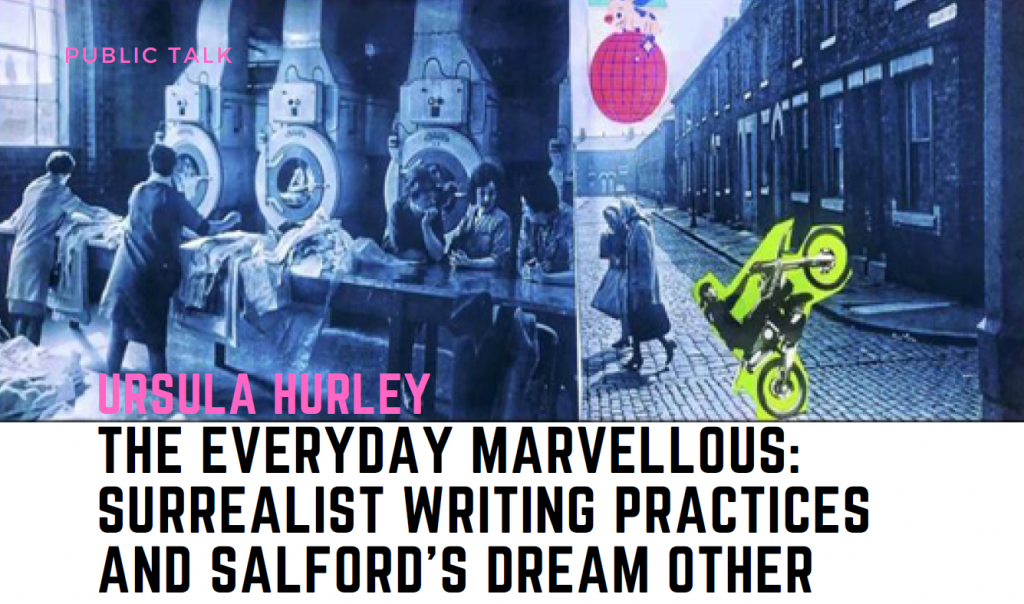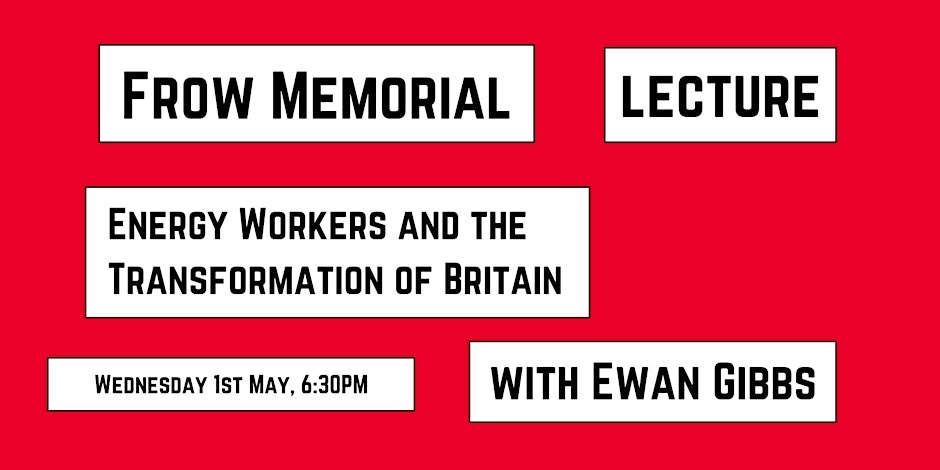We have two fantastic events coming up with our partners at the Working Class Movement Library
On Wednesday, 23rd April from 3-5pm, Professor Ursula Hurley will be giving a public talk about a new collective surrealist novel

In a project exploring creative writing and wellbeing, Salford University partnered with local charity Salford Loaves and Fishes to create a collective surrealist novel about the past, present and future of Salford. Rooted in Surrealism’s opposition to class structures and social conventions, the work used techniques like automatic writing to generate an extraordinary collection of words and images. This talk unfolds some of the history and those of the Surrealist movement, and explains some of the techniques used to create the book. Most importantly, copies of the novel will be available to view/buy, and some of the authors will be present to answer questions.
The event is free to attend and no booking is required. Just turn up on the day.
Working Class Movement Library, 51 Crescent, Salford, M5 4WX

We are also delighted to be hosting the prestigious annual Frow Memorial Lecture in the Council Chamber in The Old Fire Station on Wednesday 1st of May at 6:30pm. Ewan Gibbs will deliver the lecture titled Energy Workers and The Transformation of Britain.
The Frow Memorial Lecture is named after the library’s founders, Eddie and Ruth Frow, whose passion for activism and working-class history laid the foundation for our archive.
Energy Workers and the Transformation of Britain, late 1940s to mid-1990s
This lecture demonstrates how the working class and labour movement were at the heart of the transformation of Britain in the second half of the twentieth century by focusing on the central role of energy industry workers and trade unionists in broad-ranging processes of economic and political change.
Developments in coal mining, conventional electricity, the nuclear project and the oil and gas sector reveal crucial dynamics. They illuminate the evolving balance of political power and important changes to the organisation of work in the private and public sectors.
The lecture duly engages with existing accounts of Britain’s post-Second World War history, which have emphasised the transition from a social democratic to neoliberal political economy, deindustrialisation and the rise and fall of economic nationalism respectively. It emphasises the fundamental centrality of the energy economy and its labour regimes. Analysis draws on records of government, industry and trade unions along with testimonies from current and former workers recorded during an extensive oral history project themed around workplace and community experiences of energy employment.
Ewan Gibbs is a historian of energy, industry, work and protest based at Glasgow University. He published his first book, Coal Country: The Meaning and Memory of Deindustrialization in Postwar Scotland in 2021. Ewan is currently researching worker perspectives of the expansion and evolution of the British energy economy since the 1940s.